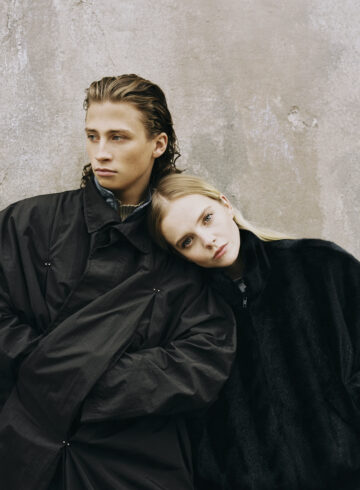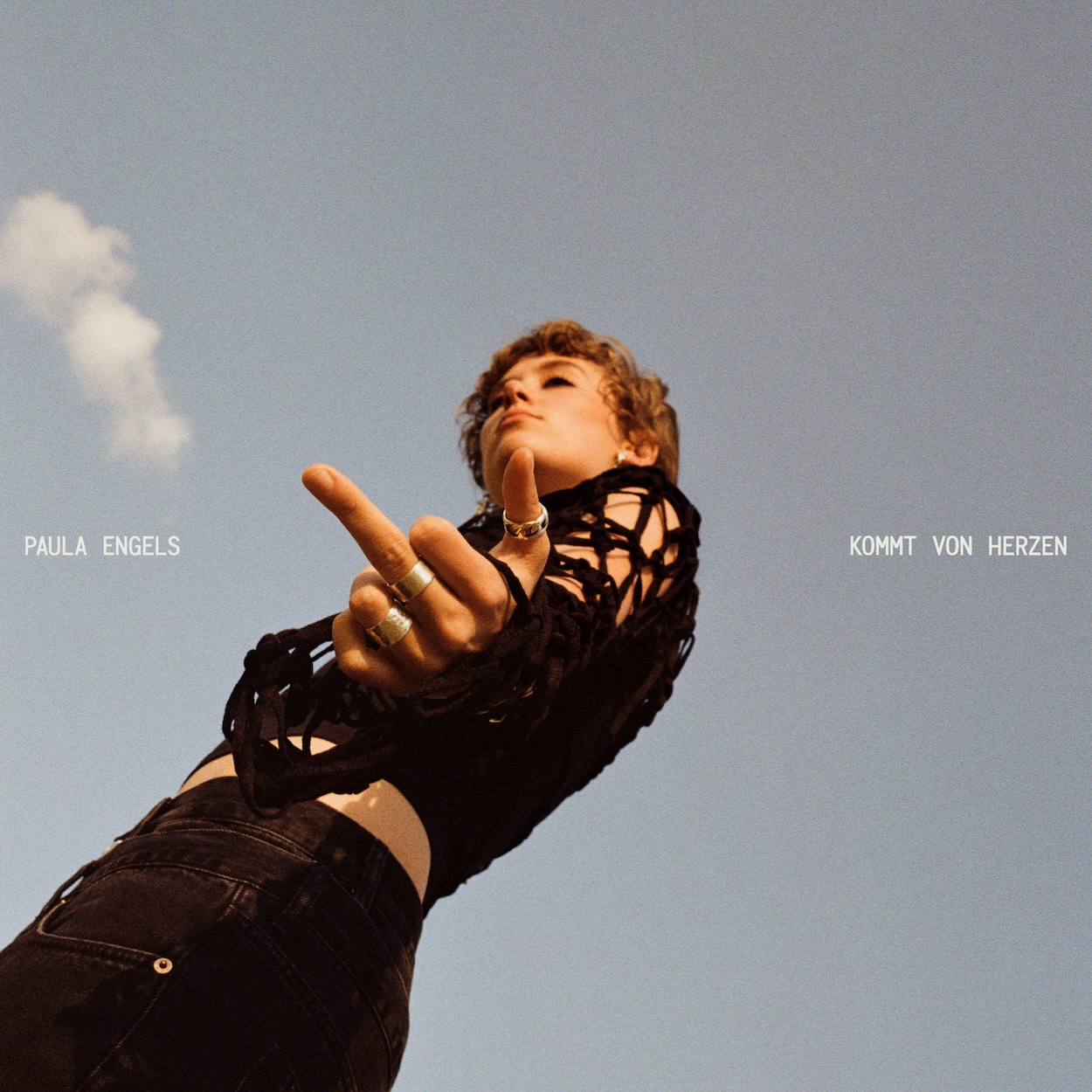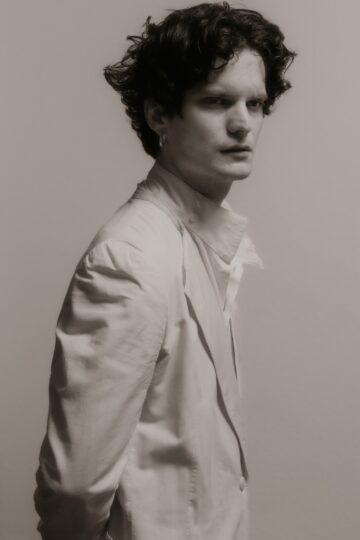
WEEKEND MUSIC PT. 74: PAULA HARTMANN & BERQ – “GEGENTEIL VON GLÜCK” EP RELEASE
PAULA HARTMANN & BERQ – “GEGENTEIL VON GLÜCK” EP RELEASE



“I started comparing myself way too much because, for the first time, there was an outside evaluation.”
We met Paula Engels shortly after she released her debut album, “Kommt von Herzen” (From the Heart). Paula is a musician unafraid to confront every part of herself, even the dark and uncomfortable corners. With this new album, she establishes her identity as an artist. Paula shares with me the intense journey of making the album, the highs and lows of the release process, and how she has gradually learned to care less about other people’s expectations.
Paula Engels: The release felt really good, but mentally I’ve already moved on because the album has been finished for about three months. In the beginning, I always felt like I still had to explain who I wanted to be as an artist and what kind of music I make. But now there’s an album, and people can just listen to it and find out for themselves. That gives me a bit more freedom to do unexpected things.
The release itself was really beautiful, and I got a lot of positive feedback. But for a long time, I honestly didn’t know if I would end up being proud of the album.
For the longest time, I just didn’t know what it sounded like or what it was supposed to sound like in the end. Now it sounds completely different from what I expected. At first, I thought it was going to be a lot darker and weirder. I really wanted it to sound cool. But now it sounds much more like me. It’s not trying to be something it’s not.
That’s pretty much always the case for me. I almost never write songs with the intention of “I want to write about this specific topic.” Most of the time, I just start writing. I pour out all my thoughts and realize what the song is really about when it’s almost finished.
“I’m never really angry, and if I am, it’s usually at myself. […] For me, music has always been a place where those “ugly” emotions can exist. A space where you don’t have to be fair.”
When I started putting out songs, I realized that I didn’t actually like the process as much as I thought I would. The first time felt a bit like having a birthday. Everyone messaged me saying, “Oh my god, congratulations!” But by the second release, suddenly there was a bar set. You see the numbers from your first release and everyone else’s. I started comparing myself way too much because, for the first time, there was an outside evaluation. It was really hard not to let that affect how I judged my own songs. Eventually, I ended up hating everything I wrote in the following months.
I was overworked from the years before, and there was just so much new stuff happening all at once. I never really took time to reflect or let anything sink in. So I took a short break and went with my team to a beautiful studio in the South of France. That’s where a lot of songs were created. Songs where I tried to let go of the expectations of others.
I think with that song, I had so many other people’s opinions in my head that I didn’t even know what I wanted anymore. I couldn’t really tell if something was truly my own will or if someone had already talked me into it. After that break in the South of France, it became clearer. Overall, it works better sometimes and worse other times I think I’m still a bit of a people pleaser, but following my gut feeling is really important to me, and it usually works out well when I do.
I somehow find it really hard to feel anger. I’m never really angry, and if I am, it’s usually at myself. I think that’s a general issue among women. It’s something that’s kind of trained out of us. But I also think that everyone carries anger inside them. For me, music has always been a place where those “ugly” emotions can exist. A space where you don’t have to be fair. I’ve always loved when music pushes the boundaries that exist in real life. It felt really liberating to have a space where I didn’t need to be rational. Especially with “Gift”, I had so much fun in the studio. Just throwing things out there, saying what I wanted, without worrying if it was fair or not. I’m still working on allowing myself to feel anger and not dismissing it. I wanted the album to include everything I feel.
I quickly figured out what I didn’t want. I feel like none of the songs on this album were written for anyone else. They all came from my emotions. One day, the idea just popped into my head. For me, “Kommt von Herzen” and “Mittelfinger an die Welt” belong together. My middle finger comes from the heart, you know?
“I always felt like I still had to explain who I wanted to be as an artist and what kind of music I make.”
A lot has changed. In the beginning, my songs were in English because I didn’t want people to understand what I was writing about or how I felt. That’s changed completely. The songs that are hardest for me emotionally are usually the most important ones. The ones that resonate most with others and mean the most to me. Two years later, when I was around 16, I wrote my first song in German. And in that moment, I decided I’d never write in English again. My English songs were honestly terrible. I’m really glad I never uploaded anything to social media back then and that there are barely any recordings left.
I actually had to be convinced to release it. It took me a while to realize that it’s about finding yourself. But it’s also about the distance of 560 km from Düsseldorf to Berlin. I moved really naively; I thought nothing would change. The first nine months in Berlin, I just pushed through. But somehow, I didn’t feel at home in Berlin, and in Düsseldorf I felt like a guest. Suddenly, there were so many different versions of myself, and I didn’t know which one was the real one or if the version I had in my head was even accurate anymore. That’s how the song came about. A jumble of everything, really.
I’m going on tour in two weeks. I’m not sure what’s coming after that yet. There are still so many songs from the album process that I really love, but that didn’t make it onto the record. But there’s definitely more music coming, and I’ll be playing some great festivals next year.
It’s my first tour, so I think it’s going to be really special. I’m incredibly excited.

PAULA HARTMANN & BERQ – “GEGENTEIL VON GLÜCK” EP RELEASE

"I always thought fashion would be a good place for the way I think about music and…

"CREATIVITY OFTEN…